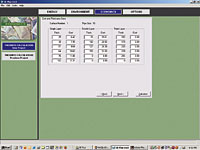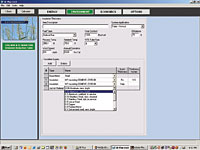The 3E Plus program, available for free at www.pipeinsulation.org, is designed to quantify energy, environmental, and cost savings yielded by increasing pipe, duct, and vessel insulation levels in commercial buildings and industrial facilities.
According to NAIMA, users will find that 3E Plus version 4.0 is easier to use and more flexible than previous versions. The new version provides users with more guidance and easier data labeling, and the capability to create and save new default entries. A key change is the ability to calculate in both metric and inch-pound units.
In addition, insulation jacket options have been expanded and PVC pipes are now included in the program's standard options. 3E Plus Version 4.0 also is designed to make it easier to calculate the effects of multiple layers of pipe insulation. NAIMA said users can take advantage of 3E Plus for all types of insulation covered by ASTM C 680 and can add data from any type of insulation outside ASTM C 680.
Finally, the program is designed to automatically calculate insulation thickness tables for multiple pipe sizes and temperatures. This was previously a manual process that involved thousands of calculations.
"The new version of 3E Plus includes important new features and enhanced capabilities based on the needs of users," said Charles Cottrell, vice president of technical services for NAIMA. "We have an active user base that has provided invaluable feedback on how they use the program and what other tasks they needed to accomplish with the program. This new version answers those needs and helps clearly show the value of insulation."

Core Functionality
According to NAIMA, 3E Plus includes the ability to:

3E Plus has been used as a tool in several U.S. Department of Energy programs through its toolkit, "Decision Tools for Industry." The National Insulation Association (NIA) uses 3E Plus as a core element of its Industrial Energy Appraisal program course, and is launching a new seminar focused solely on 3E Plus this month. (For information on the NIA training, visit www.insulation.org/training.)
"3E Plus provides specifiers the information they need to design and build more energy-efficient systems," said Ken Mentzer, NAIMA's president and CEO. "NAIMA created 3E Plus to illustrate how improving system insulation can reduce emissions, and save money by decreasing the energy used to operate a commercial or manufacturing facility. With more than 10,000 registered users, NAIMA has enhanced 3E Plus to make it an even better tool for specifiers."
Publication date: 10/10/2005

Report Abusive Comment